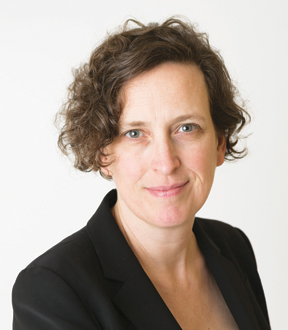At the Core | Editorial
Count me among those thrilled to see the American Library Association (ALA) adopt sustainability as a core value. This decision by ALA Council, which passed with overwhelming support at the Midwinter Meeting in Seattle, affirms the important work so far in this area and provides a springboard forward for libraries to activate around sustainable thinking.
Empowered to lead on sustainable thinking
 Count me among those thrilled to see the American Library Association (ALA) adopt sustainability as a core value. This decision by ALA Council, which passed with overwhelming support at the Midwinter Meeting in Seattle, affirms the important work so far in this area and provides a springboard forward for libraries to activate around sustainable thinking. Congratulations to all who toiled for this and saw the resolution passed; it is a dream come true. Now we need to make it meaningful in practice.
Count me among those thrilled to see the American Library Association (ALA) adopt sustainability as a core value. This decision by ALA Council, which passed with overwhelming support at the Midwinter Meeting in Seattle, affirms the important work so far in this area and provides a springboard forward for libraries to activate around sustainable thinking. Congratulations to all who toiled for this and saw the resolution passed; it is a dream come true. Now we need to make it meaningful in practice.
If you haven’t had a chance to read the resolution, which I was proud to endorse, please do. An outcome of the efforts of the Special Task Force on Sustainability, it will anchor you in what this decision can mean. It speaks to the ability of libraries to drive engagement with this problem today and tomorrow. One clause reads:
Whereas the association, library profession and libraries of all types—academic, public, school and special—have the stature, energy, determination and will to build the coalitions, convene the conversations and act as the catalysts the world needs, not only today, but to inspire future generations, to take control of their future by working together to find the necessary adaptations and solutions to thrive as communities.
It also articulates a definition of sustainability that revolves around the concept of the “triple bottom line”: “To be truly sustainable, an organization or community must embody practices that are environmentally sound AND economically feasible AND socially equitable.”
 This might sound familiar to those of you following my focus on sustainable thinking over the years and here in New York. The New York Library Association (NYLA) Sustainability Initiative (SI), of which I am a cocreator, has been working with this framework since its founding in 2015. Now that entity is evolving from a committee to NYLA’s Sustainable Thinking & Action Round Table. Some libraries have already begun to realize key goals. The SI’s Sustainable Library Certification Program has just seen the first two public libraries complete certification: congratulations to the teams at the Hendrick Hudson Free Library, Montrose, and the Saratoga Springs Public Library for taking on the challenge and creating models for others.
This might sound familiar to those of you following my focus on sustainable thinking over the years and here in New York. The New York Library Association (NYLA) Sustainability Initiative (SI), of which I am a cocreator, has been working with this framework since its founding in 2015. Now that entity is evolving from a committee to NYLA’s Sustainable Thinking & Action Round Table. Some libraries have already begun to realize key goals. The SI’s Sustainable Library Certification Program has just seen the first two public libraries complete certification: congratulations to the teams at the Hendrick Hudson Free Library, Montrose, and the Saratoga Springs Public Library for taking on the challenge and creating models for others.
That kind of tangible momentum is excellent and joins the efforts by ALA’s Sustainability Round Table and the International Federation of Library Associations and Institutions (IFLA) to enable libraries to move ahead on this issue.
Defining sustainability is crucial and so is codifying a commitment to it in policy via the key documents of our institutions and organizations. Now libraries are further empowered, and expected, to take leadership on sustainable thinking in their communities.
Ultimately, the resolution tasks ALA with the work of helping librarians and their institutions realize the goals of the resolution through accreditation standards, tools, and information to “inspire, cultivate and encourage active leadership in the application of the triple bottom line framework to guide decisions for the future of society.”
I look forward to all that ALA will do to respond to this call to action. Full engagement is required. But we can’t wait to follow ALA’s lead; I also urge more action at all levels. Use this empowering decision as the catalyst our communities need to focus on the major challenges we face.
Now that sustainability has been recognized by ALA as a core value for the field, we have all the more reason to embrace it. It’s a big lift, so let’s get busy.


RELATED
ALREADY A SUBSCRIBER? LOG IN
We are currently offering this content for free. Sign up now to activate your personal profile, where you can save articles for future viewing









Add Comment :-
Comment Policy:
Comment should not be empty !!!